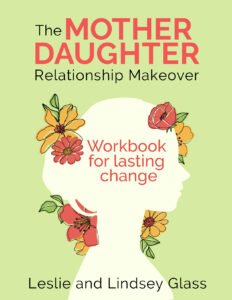How Mother Daughter Conflict Echoes for Generations
The reality is mother daughter conflict doesn’t just happen. It’s learned, it’s imprinted, and it’s taught. Question, does your mom complain about her mom? Did grandma complain about her mom? Family conflict is never just about the present moment. When a mother and daughter struggle, the ripples extend far beyond the two of them. The words spoken, the silence withheld, the patterns of criticism or neglect—these things don’t stop with one generation. They echo.
For many daughters, the blueprint for relationships is written in childhood. If love feels conditional—tied to appearance, achievement, or obedience—that message becomes internalized. A daughter learns to measure her worth by the approval of others. If anger or criticism is the dominant form of communication, she may grow up expecting conflict as the norm. If mother daughter conflict is normal she won’t know anything different. The problem is, these lessons, absorbed almost invisibly, get carried into adult partnerships, friendships, and eventually into parenting.
Mother Daughter Conflict Inevitably Echoes To The Next Generation
The echoes don’t stop there. When daughters become mothers themselves, they may unintentionally repeat the same patterns they once longed to escape. A mother who was overly critical may raise a daughter who becomes critical in turn. A mother who withheld affection may raise a daughter who struggles to show warmth to her own children. Even when the intent is different, the old scripts creep in, passed down like an unwanted family heirloom. I consider my mom to be controlling. She considers me to be controlling. See how it works?
Mother Daughter Conflict Cycles Can End With Understanding
But here’s the hopeful truth: cycles can be broken. Awareness is the first step. By recognizing how mother daughter conflict has echoed through your family, you can begin to choose something different. You can pause before repeating the old words. You can set new boundaries. You can model healthier ways of relating that show the next generation love doesn’t have to hurt.
Breaking the cycle also means tending to yourself. Healing requires self-care, reflection, and a willingness to rewrite your own narrative. That’s where tools like journaling, therapy, and guided exercises become so powerful—they allow you to see the larger story and create a new one.
That’s exactly why I created The Mother-Daughter Relationship Makeover Workbook for Lasting Change. It’s designed to help you identify the generational scripts that have shaped your bond, uncover where they came from, and practice new ways of communicating. With assessments, journal prompts, and practical steps, the workbook gives you the tools to stop the echoes and start something new.
Conflict may echo for generations, but so can healing. By doing the work now, you create a legacy of love, safety, and connection that your children—and their children—can carry forward.
3 Ways Mother Daughter Conflict Echoes in Future Generations
-
Emotional Inheritance
Children absorb not just words but the emotional climate of the home. If conflict is constant, they may inherit anxiety, mistrust, or fear of intimacy—carrying those feelings into adulthood. -
Relationship Blueprints
Daughters who grow up with criticism, neglect, or control often assume that’s what “normal” love looks like. They may attract partners or friendships that replay those dynamics, continuing the cycle. -
Parenting Patterns
Without awareness, mothers often parent the way they were parented. Old scripts—whether harsh discipline, silence, or overprotection—resurface, shaping how they raise their own children.
CHECK OUT THE FIRST BOOK
Follow us onInstagram
Like us on Facebook
Comment on our posts























